-

A new special edition and a new event in Copenhagen – This is happening at Life Science Sweden 2024
The new year brings new features for the readers of Life Science Sweden.
-
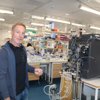
The art of building a biologic drug
The first biosimilar from Xbrane Biopharma was launched earlier this year, and several more are under development at the company’s facility in Solna, Sweden. “We do everything in-house ‒ from DNA fragments to a final process,” says David Vikström, Chief Technology Officer at the company.
-

Tirzepatide approved for obesity by the FDA – to be branded as Zepbound
Diabetes drug tirzepatide has now also been approved in the US for treating obesity.
-

The first drugs to slow down Alzheimer’s – but what does it mean for patients?
New treatments for early Alzheimer’s are bringing hope to thousands of patients and their families. The question is, who will get the treatment, how will the right patients be found in time, and will the healthcare system’s resources be sufficient? Life Science Sweden has spoken to Swedish researchers in Alzheimer’s who voice cautious hope but also see further challenges.
-

Gothenburg-based company acquired by Norwegian diagnostics group
Gentian Diagnostics acquires Gothenburg-based Getica.
-

Swedish and Ukrainian Medical Product Agencies sign an agreement
The Directors-General of the Swedish and Ukrainian Medical Products Agencies have signed a cooperation agreement.
-

Great Swedish innovations: Eye treatment became a feather in Pharmacia’s cap
From complicated and sometimes risky surgery to a routine procedure. Pharmacia’s injectable Healon revolutionised the field of eye surgery - and is considered by us one of the most important contemporary Swedish innovations in the field of medicine.
-

“We aim to be a start-up company with an academic spirit”
Chronic pain and Alzheimer’s are two diseases that plague many people worldwide and seem impossible to cure. However, Huddinge-based company Alzecure is working on developing drugs for both conditions.
-

Biosimilars bring price pressure, but are they sufficiently used?
When biosimilars were introduced just over 16 years ago, hopes were raised that they would give many more patients access to effective but otherwise extremely expensive treatments with biological drugs. So, how well has Swedish healthcare used biosimilars? The answer partly depends on whom you ask.
-

Amorphous materials take centre stage when Orexo develops new formulations
Swift resolution but with maintained stability. Orexo’s new drug delivery platform tackles the problem of amorphous materials. “Our technology has the positive properties of the material, and it also cracks some of the problems,” says the company’s Research and Development Manager Robert Rönn.
-
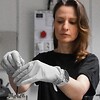
Ny metod för mikroskopi öppnar genväg till nya läkemedel
Forskare vid Chalmers har utvecklat en helt ny mikroskopiteknik för att kunna studera de minsta biologiska partiklarna i sitt naturliga tillstånd – och därmed öppna vägar för snabbare utveckling av nya läkemedel och vaccin.
-

Anna Törner: To kill your darlings
Hopes were high when Anna Törner and her colleague started a study on a dietary supplement that seemed unbelievably good. “Enthusiastically, we dreamed of exciting results and perhaps a publication in a high-impact journal,” she writes in a column.
-

Hello Angelica Loskog!
Life Science Sweden would like to know more about Angelica Loskog and interviews her about her life as a researcher.
-
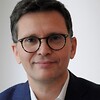
We will now publish more news in English – and offer yet another newsletter
Starting next week, Life Science Sweden will begin offering a newsletter entirely in English.
-

Miljonstöd till 14 life science-projekt för bättre hälsa
Nya tekniker för fixering av handfrakturer, AI-prediktion av blodtrycksfall och tidig detektion av bukspottkörtelcancer finns bland de 14 projekt för bättre hälsa som får miljonstöd av innovationsprogrammen Swelife och Medtech4health.
-

CAR-T therapies give continued hope: “Almost half of the patients have become disease-free”
become disease-free, at least of those treated with Yescarta, which are the ones I know best,” says Gunilla Enblad, Chairman of the national working group for CAR-T treatment.
-

Sweden and Denmark – this is how they choose their strategies
Scandinavia’s two major powers in pharmaceutical research have developed strategies for growth in life science, and both countries aim to become world leaders.
-
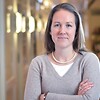
Column: Why there cannot be a complete cure for cancer – but there is certainly another way!
"Is there a new way we need to be thinking about how to prevent cancer?" Lucy Robertshaw reflects upon which is the smartest way to beat cancer.
-
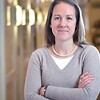
Lucy Robertshaw: There is a bio revolution happening right now
Lucy Robertshaw is both proud and excited to be taking the baton of moderating this year’s Pharma Outsourcing event.
-

Samtycke från patient – i många fall inte tillräckligt för databehandling
Vilka är konsekvenserna av att den Europeiska dataskyddsstyrelsen uttalat att försökspersoner i de flesta fall inte kan samtycka till hantering av data rörande dem? Advokaterna på Cirio Advokatbyrå reder ut.
-
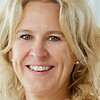
Sedana får ny CFO
Susanne Andersson efterträder Maria Engström.
-

Pilots want to live too
-
Coordination of world-class research facilities
Four unique world-class research facilities are located just a few hours apart. Properly utilised, a Nordic centre for world-leading life science innovation and research could become a reality. Kajsa M Paulsson is the project leader for HALOS, driving the idea forward.
-
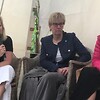
“Register och journalsystem borde vara samma sak”
Sverige ett framgångsrikt land inom medicinsk forskning, men hur ser det ut i dag och hur blir vi världsbäst?
Få tillgång till allt innehåll på Life Science Sweden
Ingen bindningstid eller kortinformation krävs
Redan prenumerant? Logga in
Gäller endast personlig prenumeration.
Kontakta oss för en företagslösning.